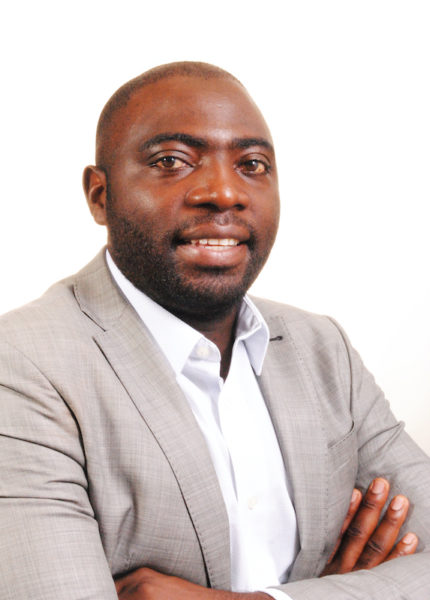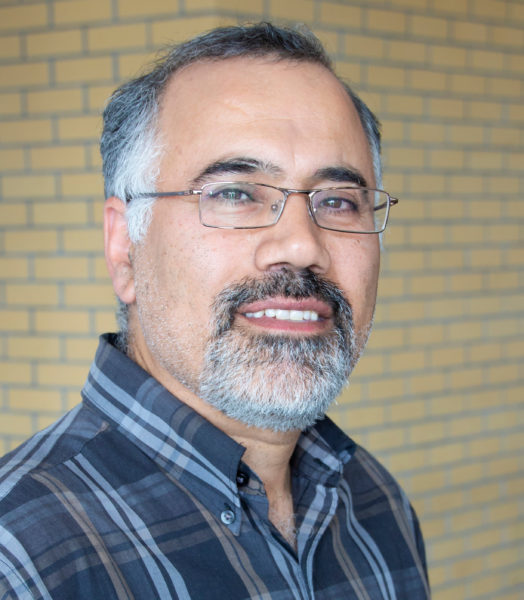TORONTO, Jan. 31, 2022 – Artificial Intelligence (AI) can help tackle inequities that contribute to a higher risk of the most vulnerable contracting and dying of COVID-19, but York University researchers say the right data is crucial for that to happen.
Vulnerable people are often more exposed to COVID-19 through their work, such as meat packing plants, and their living conditions which are often crowed, and they face more economic barriers, such having to rely on public transportation.

Jude Kong
York University Assistant Professor Jude Kong, Associate Professor Ali Asgary, and Distinguished Research Professor Jianhong Wu, can discuss how AI can play a role in eliminating inequities, especially during crises such as the current pandemic, ahead of upcoming webinar – Discovering COVID-19 Inequities and Systemic Vulnerabilities the Role of Artificial Intelligent Policy Implications. The webinar is part of the Transformative Disaster Risk Governance Webinar Series.
“There is a need to use artificial intelligence to collect data disaggregated by race, gender, sexuality, class, geographic location and Indigeneity to better understand how COVID-19 is disproportionately affecting vulnerable people, whether here in Canada or in Africa, where many countries have difficulty obtaining vaccines. This kind of data could not only help with today’s pandemic, but prepare for future crises by ensuring effective allocation of resources,” says Kong, Faculty of Science, and director of the Africa-Canada Artificial Intelligence and Data Innovation Consortium.

Asgary of the Faculty of Liberal Arts and Professional Studies and associate director of the Advanced Disaster, Emergency and Rapid Response Simulation (ADERSIM), points out that the pandemic has exacerbated global socio-economic inequities. “It has shown how crises affect people differently according to their gender, skin colour, geographic location and Indigeneity – and it doesn’t not bode well for future crises.”

Ali Asgary
The 17 United Nations Sustainable Development Goals, such as ending poverty and achieving food security, are examples of systemic challenges that AI can help address, but as Wu, director of ADERSIM notes the data required to even document and understand these challenges is often unavailable.
Properly supported with the necessary regulatory insights and oversights so inequities are not exacerbated, AI techniques could be used to analyze satellite data and track areas of poverty, predict droughts, forecast floods (leading to better infrastructure to prevent them), optimize resources following a natural disaster and improve resiliency in structural designs, and so much more.

Jianhong Wu
The webinar will take place Thursday, Feb. 3 from 10 a.m. to noon and will provide insights on some of the major equity and systemic vulnerability challenges and issues arising from the COVID-19 pandemic. The speakers will discuss the role of AI and will highlight policy implications for the current, as well as future pandemics and disasters, to minimize equity issues and systemic vulnerabilities.
For a complete list of speakers and to register, click here: https://www.yorku.ca/cifal/inequity/
-30-
York University is a modern, multi-campus, urban university located in Toronto, Ontario. Backed by a diverse group of students, faculty, staff, alumni and partners, we bring a uniquely global perspective to help solve societal challenges, drive positive change and prepare our students for success. York's fully bilingual Glendon Campus is home to Southern Ontario's Centre of Excellence for French Language and Bilingual Postsecondary Education. York’s campuses in Costa Rica and India offer students exceptional transnational learning opportunities and innovative programs. Together, we can make things right for our communities, our planet, and our future.
Media Contact:
Sandra McLean, York University Media Relations, 416-272-6317, sandramc@yorku.ca

